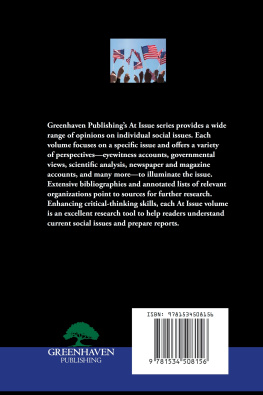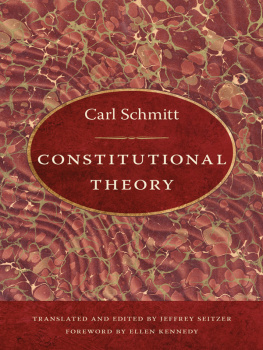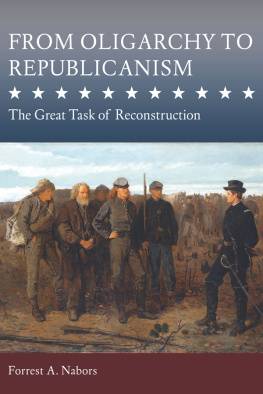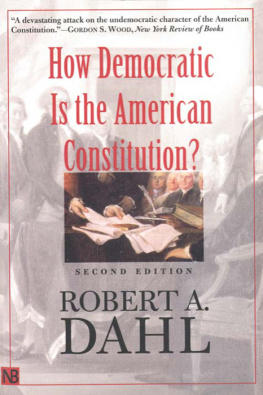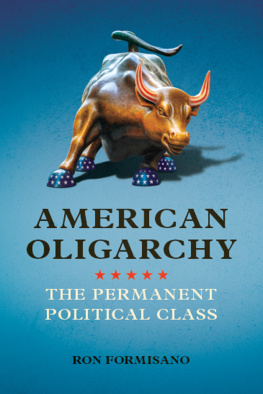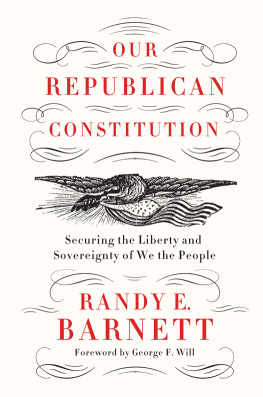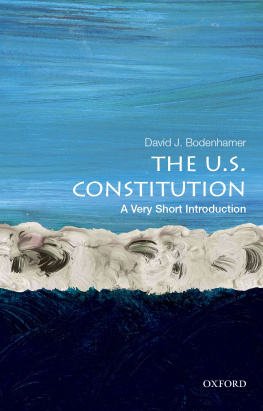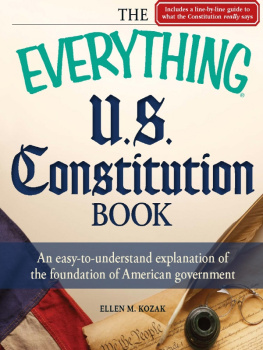Contents
Guide
Pagebreaks of the print version
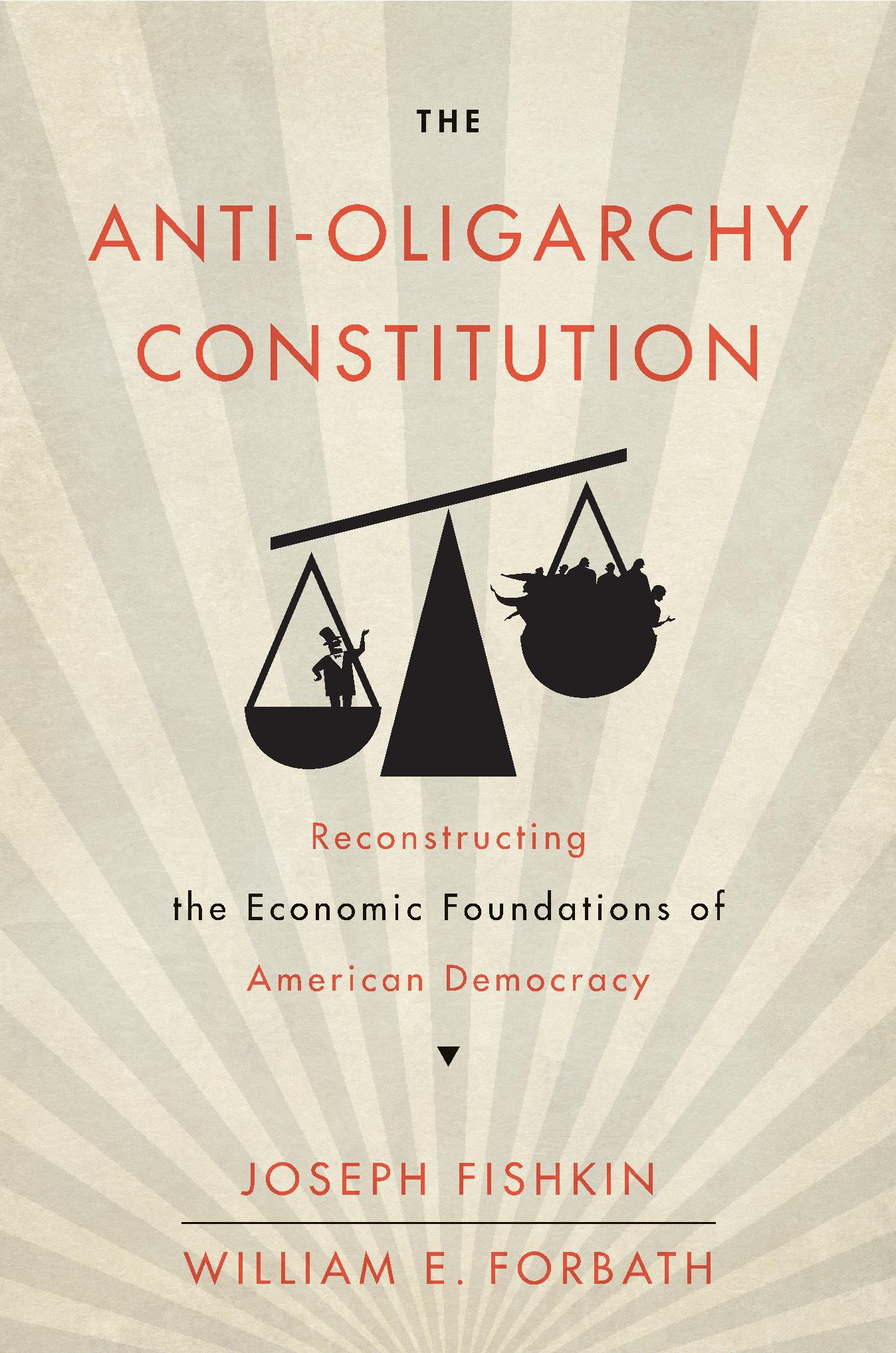
ANTI-OLIGARCHY CONSTITUTION
Reconstructing the Economic Foundations of American Democracy
JOSEPH FISHKIN
__________________________
WILLIAM E. FORBATH
Harvard University Press
Cambridge, Massachusetts London, England
2022
Copyright 2022 by the President and Fellows of Harvard College
All rights reserved
Jacket design: Graciela Galup
Jacket art: Getty Images
978-0-674-98062-4 (cloth)
978-0-674-24740-6 (EPUB)
978-0-674-24741-3 (PDF)
Publication of this book has been supported through the generous provisions of the Maurice and Lula Bradley Smith Memorial Fund.
The Library of Congress has cataloged the printed edition as follows:
Names: Fishkin, Joseph, author. | Forbath, William E., 1952 author.
Title: The anti-oligarchy constitution : reconstructing the economic foundations of American democracy / Joseph Fishkin and William E. Forbath.
Description: Cambridge, Massachusetts : Harvard University Press, 2022. | Includes bibliographical references and index.
Identifiers: LCCN 2021020480
Subjects: LCSH: United States. Constitution. | OligarchyUnited StatesHistory. | LawEconomic aspectsUnited States. | DemocracyEconomic aspectsUnited States. | United StatesEconomic policy.
Classification: LCC JC419 .F57 2022 | DDC 320.973dc23
LC record available at https://lccn.loc.gov/2021020480
CONTENTS
Our constitutional system is headed for a historic confrontation. As in the 1930s, the elected branches of the federal government face an immediate crisisthen the Depression, now the economic devastation wrought by a pandemicthat has laid bare and exacerbated a slower-burning crisis of growing economic and political inequality. Most Americans understand, if sometimes in an inchoate way, that this crisis of inequality threatens our democracy. When too much economic and political power is concentrated in too few hands, what you have is not democracy but oligarchy. Prominent voices now speak openly of oligarchy in this country. Yet it remains possible to change courseto reshape the nations political economy and disperse economic and political power more broadly among all the people.
As we write these words, liberals and progressives in the elected branches of the federal government are beginning to do this work. They hope to enact measures to distribute both wealth and political power more broadly among all the people: more decent jobs, public investment, and social insurance; more clout for ordinary Americans in politics and in the labor market; more taxing and breaking up concentrated wealth. But as in the 1930s, liberal and progressive lawmakers confront a very conservative federal judiciary that is deeply hostile to exactly this sort of legislation. It is a judiciary put in place by a political party with a weakening grip on power, but a growing determination to thwart legislation and sustain minority rule by translating its vision of political economy into constitutional law.
The phrase political economy is essential for understanding the present crisis. It is an old way of thinking that is becoming new again. Before the twentieth-century rise of economics as a discipline, thinkers as varied as Adam Smith, John Stuart Mill, and Karl Marx understood economics and politics as inseparable. These political economists studied such subjects as wages, prices, labor and capital, the distribution of wealth, and the distribution of political power. They observed how political decisions shape and constitute market and property relations and thereby shape the distribution of wealth and powerand they observed how economic relations and economic power shape politics. As long as political economy flourished, Americans of all political stripes viewed and argued about the Constitution through a political-economy lens and the political economy through a constitutional lens. In the twentieth century, economics supplanted political economy.
Confronting the present crisis will require liberals and progressives to reclaim many of their older arguments about political economy and enact policies and laws that implement them. This is work for the elected branches. Much of the work is federal legislation. And nearly all of it is vulnerable to constitutional attack by an emboldened conservative political and legal movement that aims, as its predecessors did a century ago, to elevate an anti-redistributive vision of political economy into constitutional arguments to be enforced in court.
In the looming constitutional confrontation, the democratically elected branches have some tools and methods of their own, which they can and likely will use to challenge, defy, or threaten the courts, pushing back against judges constitutional and statutory claims. But in the name of what? General theories of democracy? A broad vision of congressional power? Precedent and stare decisis, to protect old holdings won in prior rounds of this same conflict, such as the battle over the New Deal? There is room for all these arguments, although each has real limitations. But there is also something else. There is an American tradition of constitutional argument that directly addresses the central problems of oligarchy and inequality we now face. That tradition is the subject of this book.
Throughout the nineteenth and early twentieth centuries, generations of reformers argued that America was becoming a society with a moneyed aristocracy or a ruling classan oligarchy, not a republic. These reformers were making constitutional claims. For them, circumstances resembling Americas today, in which too much economic and political power is concentrated in the hands of the few, posed not just an economic, social, or political problem, but a constitutional problem.
We call this tradition the democracy-of-opportunity tradition. It is as old as the republic itself. But we take the name from President Franklin Roosevelt, who argued that it was a constitutional necessity to overthrow the economic royalists and build a democracy of opportunity for all Americans in the economic and the political spheres.
Constitutional Politics
Building that kind of political economy requires legislation. That is exactly what advocates working in the democracy-of-opportunity tradition argued the Constitution demanded. They held that the Constitution imposed affirmative obligations on all branches of government, but especially on the elected branches, to pass and implement the legislation needed to enforce the Constitution. Often, they insisted, the most important role for courts was to get out of the way of such legislation. Many Americans today view the Constitution as essentially a set of limits on government, enforced almost exclusively by courts. This book argues that it is time to reclaim a different way of thinking about the Constitutionone that made the democracy-of-opportunity tradition possible.
Recovering this tradition involves recovering a different understanding of what a constitutional claim iswhat it sounds like, to whom it is addressed, and how it relates to politics. It is conventional today, especially among liberals, to assume that the only real constitutional claims are the ones enforceable in court. From that perspective, constitutional claims are political conversation-stoppers; they constrain and set the boundaries of politics.
One of the core aims of this book is to help readers see beyond those assumptions. Americans making arguments in the democracy-of-opportunity tradition, through most of American history, did not view their constitutional arguments (or for that matter, those of their opponents) as outside constraints on democratic politics. Instead, they were the substance of democratic constitutional politics. The participants in these debates often argued about the affirmative constitutional duties of legislatures and executives. They saw that the political branches were crucial fora in which constitutional conflicts and deliberations unfolded. Far from being conversation-stoppers, constitutional claims were central to great national


